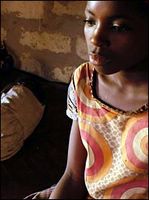This entertaining article explores the philosophical and pyschological history and basis of happiness...The New Yorker: The Critics: Books--Pursuing Happiness:
This is one of the reasons that human beings make heavy weather of being happy. We have been hardwired to emphasize the negative, and, for most of human history, there has been a lot of the negative to emphasize...
People who have scant control over their lives are bound to place tremendous importance on luck and fate....“Call no man happy until he is dead” was the Greek way of saying this...
Socrates seems to have been the earliest person to think critically about the conditions of happiness, and how one could be happy, and in doing so he caused a shift in the way people thought about the subject. Socrates made the question of happiness one of full accord between an individual and the good: to be happy was to lead a good life, one in keeping with higher patterns of being...
The legacy of that ambiguity("The right to the pursuit of happiness as declared by the Founding Fathers) is with us still. We are pursuing happiness to this day, and it is by no means clear that it is a happy process. The self-help section in any bookshop is easy to mock—indeed, it sometimes seems that the titles of self-help books are almost mocking themselves—but there is nothing to mock about the people standing in front of the shelves looking for guidance. In fact, the advice in self-help books is, by and large, pretty good. The trouble is that it is very difficult to take.
Why is this so? For the first time in human history, it’s possible to give tentative answers that are based on a scientific account of mental processes....
Philosophers have expounded on happiness for a long time, but only relatively recently have psychologists taken much of an interest. The study of “positive psychology...
One of the key questions—going straight to the heart of the Enlightenment ambition for us to be happy here and now, in this life—is whether happiness is a default setting of the brain. That is to say, are we, left to our own devices, and provided with sufficient food and freedom and control over our circumstances, naturally happy? The answer proposed by positive psychology seems to be: It depends. The simplest kind of unhappiness is that caused by poverty. People living in poverty become happier if they become richer—but the effect of increased wealth cuts off at a surprisingly low figure. The British economist Richard Layard, in his stimulating book “Happiness: Lessons from a New Science,” puts that figure at fifteen thousand dollars, and leaves little doubt that being richer does not make people happier...
According to positive psychologists, once we’re out of poverty the most important determinant of happiness is our “set point,” a natural level of happiness that is (and this is one of the movement’s most controversial claims) largely inherited....
(P)eople’s top four favorite parts of the day feature sex, socializing after work, dinner, and relaxing. Their bottom four involve commuting, work, child care, and housework. But our absolute level of happiness is more elusive...
Happiness “is something essentially subjective,” Freud wrote. “No matter how much we may shrink with horror from certain situations—of a galley-slave in antiquity, of a peasant during the Thirty Years’ War, of a victim of the Holy Inquisition, of a Jew awaiting a pogrom—it is nevertheless impossible for us to feel our way into such people. . . . It seems to me unprofitable to pursue this aspect of the problem any further.”
That isn’t, of course, the view taken by positive psychologists. Then again, the news that we’re on a hedonic treadmill, so that we end up where we’re always bound to end up, is so contrary to our fundamental appetites for exertion and the next new thing, that nobody can really accept it. So Lykken himself, the fellow who came up with the finding about the set point, went on to write a book about how to become happier. (It contained his favorite recipe for Key-lime pie.)
Positive psychology has even devised a formula for how to be happy, where H is your level of happiness, S is your set point, C is the conditions of your life, and V is the voluntary activities you do. Ready for the secret of happiness? Here it is:
H=S+C+V...
In other words, your happiness consists of how happy you naturally are, plus whatever is going on in your life to affect your happiness, plus a bit of voluntary work. Well, duh.
The only vaguely surprising thing about this is how useful voluntary work can be to the person doing it—and even that isn’t really news....
The psychological study of happiness might seem to be something of a bust. Mainly it tells us things that people have known for a long time, except with scientific footnotes. In the end, the philosophy and the science converge on the fact that thinking about your own happiness does not make it any easier to be happy....
The trouble is that asking yourself about your frame of mind is a sure way to lose your flow. If you want to be happy, don’t ever ask yourself if you are.
A person in good health in a Western liberal democracy is, in terms of his objective circumstances, one of the most fortunate human beings ever to have walked the surface of the earth. Risk-taking Ig and worried Og both would have regarded our easy, long, riskless lives with incredulous envy. They would have regarded us as so lucky that questions about our state of mind wouldn’t be worth asking. It is a perverse consequence of our fortunate condition that the question of our happiness, or lack of it, presses unhappily hard on us.








